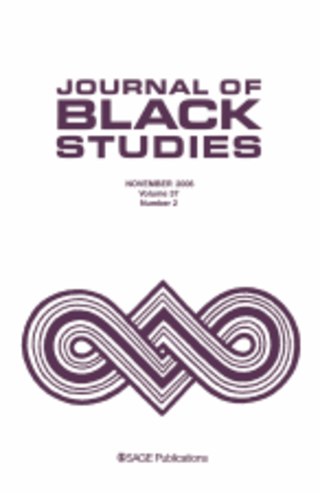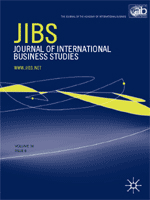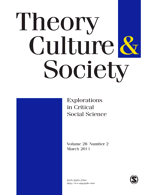Science & Society: A Journal of Marxist Thought and Analysis is a quarterly peer-reviewed academic journal of Marxist scholarship. It covers economics, philosophy of science, historiography, women's studies, literature, the arts, and other social science disciplines from a Marxist point of view. As well as covering social and political theory, it includes first-order historical research. The journal was established in 1936 and is published by Guilford Publications. The editor-in-chief is Julio Huato.

The Journal of Asian Studies is the flagship journal of the Association for Asian Studies, publishing peer-reviewed academic scholarship in the field of Asian studies. With an acceptance rate of approximately 6%, it upholds rigorous standards in the evaluation and publication of scholarly research. Each issue of the Journal of Asian Studies circulates over 8,200 copies, reaching a readership across the academic community and beyond.

Administrative Science Quarterly is a peer-reviewed academic journal covering the field of organizational studies. The journal was established in 1956 and is published by SAGE Publications for the Samuel Curtis Johnson Graduate School of Management at Cornell University. In 2007, it was ranked as the #16 academic journal in business by Financial Times.

The Journal of Black Studies is a bimonthly peer-reviewed academic journal that publishes papers in the fields of social sciences and ethnic studies concerning African and African diaspora culture, with particular interest in African-American culture. As of 2023, the journal's editor-in-chief is Christel N. Temple, and the Book Review Editor is Taharka Adé. The black studies journal was established in 1970 by Molefi Kete Asante and is currently published by Sage Publishing.

The Social Sciences Citation Index (SSCI) is a commercial citation index product of Clarivate Analytics. It was originally developed by the Institute for Scientific Information from the Science Citation Index. The Social Sciences Citation Index is a multidisciplinary index which indexes over 3,400 journals across 58 social science disciplines – 1985 to present, and it has 122 million cited references – 1900 to present. It also includes a range of 3,500 selected items from some of the world's finest scientific and technical journals. It has a range of useful search functions such as 'cited reference searching', searching by author, subject, or title. Whilst the Social Sciences Citation Index provides extensive support in bibliographic analytics and research, a number of academic scholars have expressed criticisms relating to ideological bias and its English-dominant publishing nature.

The Journal of Personality and Social Psychology is a monthly peer-reviewed scientific journal published by the American Psychological Association that was established in 1965. It covers the fields of social and personality psychology. The editors-in-chief are Shinobu Kitayama, Colin Wayne Leach, and Richard E. Lucas.
Journal Citation Reports (JCR) is an annual publication by Clarivate. It has been integrated with the Web of Science and is accessed from the Web of Science Core Collection. It provides information about academic journals in the natural and social sciences, including impact factors. JCR was originally published as a part of the Science Citation Index. Currently, the JCR, as a distinct service, is based on citations compiled from the Science Citation Index Expanded and the Social Sciences Citation Index. As of the 2023 edition, journals from the Arts and Humanities Citation Index and the Emerging Sources Citation Index have also been included.

The Journal of International Business Studies is a double blind peer-reviewed academic journal published by Palgrave Macmillan on behalf of the Academy of International Business covering research on international business. The journal was established in 1970 and the editor-in-chief is Rosalie L. Tung.

The Web of Science is a paid-access platform that provides access to multiple databases that provide reference and citation data from academic journals, conference proceedings, and other documents in various academic disciplines.

Africa is a peer-reviewed academic journal published by Cambridge University Press on behalf of the International African Institute. The journal covers the study of African societies and culture. The journal was established in 1928 and the editors-in-chief are Julie Archambault and Joost Fontein.

Race & Class is a peer-reviewed academic journal on contemporary racism and imperialism. It is published quarterly by SAGE Publications on behalf of the Institute of Race Relations and is interdisciplinary, publishing material across the humanities and social sciences.
The Journal of Peasant Studies, subtitled Critical Perspectives on Rural Politics and Development, is a bimonthly peer-reviewed academic journal covering research into the social structures, institutions, actors, and processes of change in the rural areas of the developing world. It is published by Routledge and the editor-in-chief is Saturnino "Jun" Borras Jr..

Theory, Culture & Society is a peer-reviewed academic journal that was established in 1982 and covers sociology, cultural, and social theory. The journal aims to work "across the borderlines between sociology and cultural studies, the social sciences and the humanities and has moved towards a broader transdisciplinary frame of reference." It is published by SAGE Publications. The editor-in-chief is Mike Featherstone. The journal is also linked to the journal Body & Society and has its own book series featuring the work of theorists.
The Journal of Agrarian Change is a peer-reviewed academic journal established in 2001 covering agrarian political economy. The journal publishes historical and contemporary studies of the social relations and dynamics of production, power relations in agrarian formations and ownership structures and their processes of change.

Social Studies of Science is a bimonthly peer-reviewed academic journal that publishes papers relating to the history and philosophy of science. The journal's editors-in-chief are Nicole Nelson, Associate Professor in the Department of Medical History and Bioethics at the University of Wisconsin-Madison, and Sergio Sismondo, Professor of Philosophy and Arts & Sciences at Queen's University. The journal was established in 1971 under the name Science Studies and assumed its present title in 1975. It is currently published by SAGE Publications.
Games and Culture is a peer-reviewed academic journal that covers the field of culture and media studies, specializing on the socio-cultural, political, and economic dimensions of gaming. The editor-in-chief is Tanya Krzywinska. It was established in 2006 and is published by SAGE Publishing.
The Journal of East Asian Studies is a triannual peer-reviewed open-access academic journal covering East Asian studies. It was established in 2001 and is published by Cambridge University Press. As of 2024, the editor-in-chief is Thomas Pepinsky.

Theory & Society is a bimonthly peer-reviewed academic journal covering theoretical analyses of social processes and phenomena. It was established by Alvin Gouldner in 1974. It is published by Springer Science+Business Media and the editors-in-chief are Kevin McCaffree and Jonathan H. Turner. According to the Journal Citation Reports, the journal has a 2022 impact factor of 2.9. The editorial structure of the journal was overhauled by Springer Nature in December 2023.
The Indian Journal of Gender Studies is a triannual peer-reviewed academic journal with a focus on a holistic understanding of gender. The editors-in-chief are Malavika Karlekar and Leela Kasturi. The journal is published thrice a year by Sage on behalf of the Indian Council of Social Science Research.
Personal Relationships is a quarterly peer-reviewed academic journal published by John Wiley & Sons on behalf of the International Association for Relationship Research. It covers research on all aspects of personal relationships, using methods from psychology, sociology, communication studies, family studies, developmental psychology, social work, gerontology, and anthropology. It was established in 1994 by Cambridge University Press and the Editor-in-Chief is Sylvia Niehuis.











